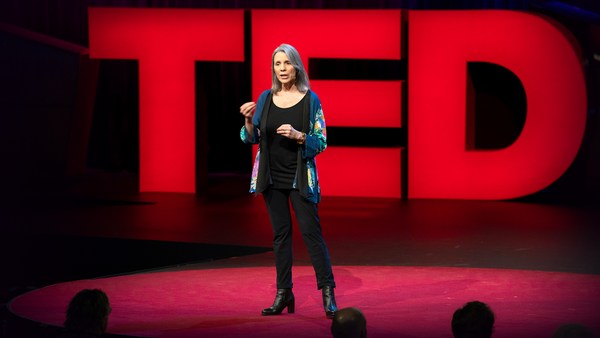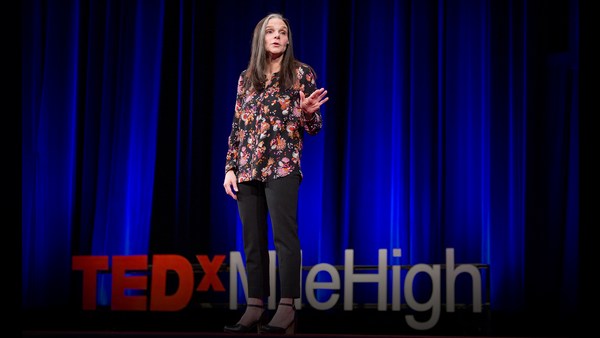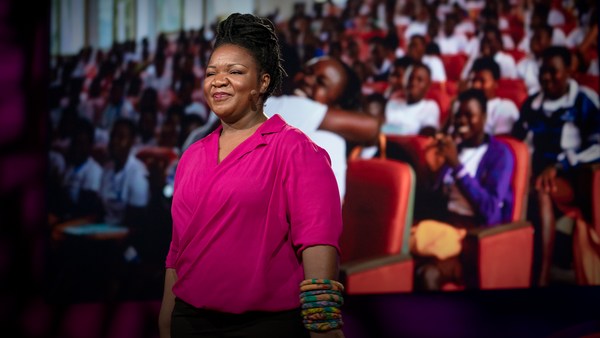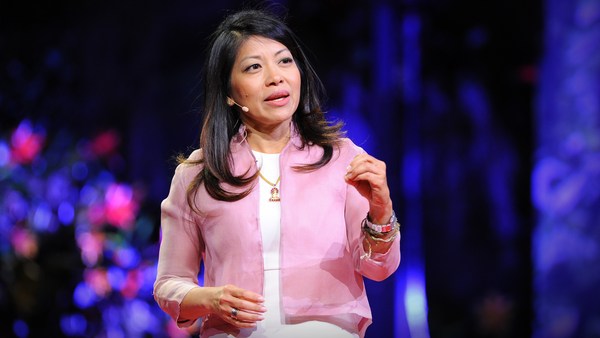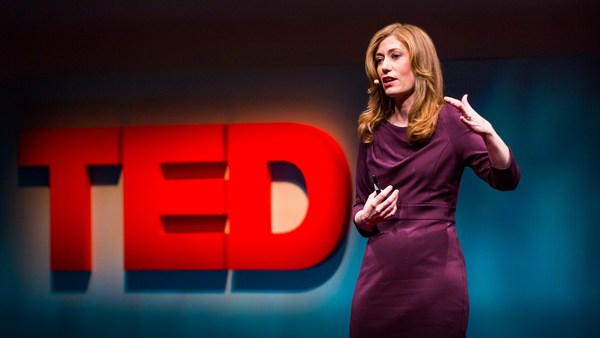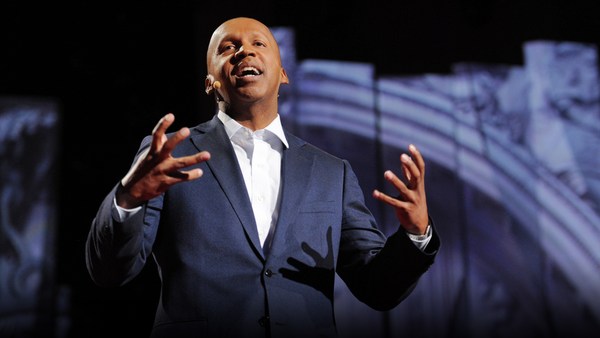Would you ever forgive a person who kills a member of your family? In September of 2019, Dallas police officer Amber Guyger was sentenced for murder, and then the brother of the victim forgave her. Brandt Jean was 18 years old, and I joined the rest of the country watching on television in awe at that act of grace.
But I also worried. I worried that people who are African American like Brandt Jean are expected to forgive more often than other people. And I worried that a white police officer like Amber Guyger receives a lesser sentence than other people who commit wrongful killings.
But because I'm a law professor, I also worried about the law itself. The law leans so severely towards punishment these days that it's part of the problem. And that's what I want to talk about here.
The powerful example of one individual's forgiveness makes me worry that lawyers and officials too often overlook the tools that law itself creates to allow forgiveness, when the principle should be the cornerstone of a thriving society. I worry that lawyers and officials do not adequately use the tools of forgiveness, by which I mean letting go of justified grievance. And those tools are many. They include pardons, commutations, expungement, bankruptcy for debt and the discretion that's held by police and prosecutors and judges.
But I also worry -- I worry a lot --
(Laughter)
I worry that these tools, when used, replicate the disparities, the inequities along the lines of race and class and other markers of advantage and disadvantage. Biases or privileged access are at work when United States presidents pardon people charged with crimes. Historically, white people are pardoned four times as often as members of minority groups for the same crime, same sentence.
Forgiveness between individuals is supported by every religious tradition, every philosophic tradition. And medical evidence now shows the health benefits of letting go of grievances and resentments. As Nelson Mandela led South Africa's transition from apartheid to democracy, he explained, "Resentment is like drinking a poison and hoping it will kill your enemies."
Law can remove the penalties for those who apologize and seek forgiveness. For example, in 39 states in the United States and the District of Columbia, there are laws that allow medical professionals to apologize when something goes wrong and not fear that that statement could later be used against them in an action for damages. More actively, bankruptcy law offers debtors, under some conditions, the chance to start anew. Pardons and expungements sealing criminal records can, too.
I have been teaching law for almost 40 years, hard to believe, but recently, I realized that we don't teach law students about the tools of forgiveness that are within the legal system, and nor do law schools usually explore the potential for new avenues for forgiveness that law can adopt or assist. These are lost opportunities. These are lost obligations, even, because the students that I teach will become prosecutors, judges, governors, presidents. Barack Obama, my former student, used his power as the President of the United States to give pardons. That released several hundred people from prison after the law changed to provide shorter sentences for the same drug crimes for which they had been convicted. But if he hadn't used his pardon power, they would still be in prison.
Legal tools of forgiveness should be used more, but not without reason and not with bias. A "New Yorker" cartoon shows a judge with a big nose and a big mustache looking down at a defendant with the exact same nose and exact same mustache and says, "Obviously not guilty."
(Laughter)
Forgiveness could undermine the commitment that law has to treat people the same under the same circumstances, to apply rules evenly. In this age of resentment, mass incarceration, widespread consumer debt, we need more forgiveness, but we need a philosophy of forgiveness. We need to forgive fairly.
Contrast the treatment globally of child soldiers with the treatment of juvenile offenders in the United States. International human rights condemn and punish adults who involve children in armed conflict as those most responsible, but treat the children themselves quite differently. The International Criminal Court, now with 122 member nations, convicted Thomas Lubanga, warlord in the [Democratic Republic of the] Congo, for enlisting, recruiting and deploying children, teens, as soldiers. Many nations commit to ensuring that people under the age of 15 do not become child soldiers, and most nations treat those who do become soldiers not as objects of punishment but as people deserving a fresh start.
Compare and contrast how the United States treats juvenile offenders, where we severely punish minors, often moving them to adult courts, even adult prisons. And yet, like child soldiers, teens and children are drawn into violent activity in the United States when there are few options, when they are threatened or when adults induce them with money or ideology. The rhetoric of innocence is resonant when we talk about child soldiers, but not when we talk about teen gang members in the United States. Yet in both settings, youth are caught in worlds that are made by adults, and forgiveness can offer both accountability and fresh starts.
What if, instead, young people caught in criminal activity and violence could have chances to accept responsibility while learning and rebuilding their lives and their own communities? Legal frameworks inviting youth to describe their conduct could also involve community members to hear and forgive. Called "restorative justice," such efforts emphasize accountability and service rather than punishment. Many schools in the United States have turned to use restorative justice methods to resolve conflicts and to prevent them, and to disrupt the school-to-prison pipeline.
Some American high schools have replaced automatic suspensions with opportunities for victims to narrate their experiences and for offenders to take responsibility for their actions. As they describe their experiences and feelings about a theft or hateful graffiti or a verbal or physical assault, the victims and offenders often express strong emotions. And other members of the community take turns describing the impact of the offense on them. The leader is often a student peer, who is trained to deescalate the conflict and orchestrate a conversation about what the offender can do that would help the victim. Together, they come to an agreement about how to move forward, what the wrongdoer can do to repair the injury and what all could do to better avoid future conflicts.
Consider this example, recently in a publication. A young woman named Mercedes M. transferred, in California, from one high school to another after she was so repeatedly suspended in her old high school for getting into fights. And here in her new high school, two other young women accused her of lying and called her the b-word. A counselor came over and talked to her and earned enough trust that she acknowledged she had stolen the shoes of one of the other classmates. Turns out, the three of them had known each other for a long time, and they didn't know any other way to deal with each other other than to fight.
The facilitator invited them to participate in a circle, a confidential conversation about what happened, and they agreed. And initially, each of them expressed a lot of emotion. And then Mercedes apologized. And she said she had stolen the shoes, but she did so because she wanted to sell them and take the money to pay for a drug test so that her mother could show she was clean and try to regain custody of two younger children who were then in state protective care.
The other girls heard this, saw Mercedes crying and they hugged her. They did not ask her to return what she'd stolen, but they did say they wanted a restart. They wanted a reason they could trust her. Later, Mercedes explained that she was sure she would have been suspended if they hadn't had this process. And her high school has reduced suspensions by more than half through the use of this kind of restorative justice method.
Restorative justice alternatives involve offenders and victims in communicating in ways that an adversarial and defensive process does not allow, and it's become the go-to method in places like the District of Columbia juvenile justice system and innovations like Los Angeles's Teen Court. If tuned to fairness, forgiveness methods like bankruptcy would be available not only for the for-profit college that goes belly-up but also for the students stuck with the loans; pardons would not be given to campaign contributors; and black men would no longer have 20 percent longer criminal sentences than do white men, due to how judges exercise discretion.
Forgiveness across the board is one way to avoid such biases. Sometimes, a society just needs a reset when it comes to punishment and debt. The Bible calls for periodic forgiveness of debts and freeing prisoners, and it recently helped to inspire a global movement. Jubilee 2000 joined Pope John Paul II and rock star Bono and over 60 nations in an effort to seek the cancellation and succeed in canceling the debt of developing countries, amounting to over 100 billion dollars of debt canceled, resulting in measurable reduction in poverty.
In a similar spirit, there are people who are copying the techniques of commercial debt collectors who purchase debt for pennies on the dollar and then seek to enforce it. Late-night television host John Oliver partnered with a nonprofit group called RIP Medical Debt, and for only 60,000 dollars, they purchased 15 million dollars' worth of medical debt, and then they forgave it.
(Applause)
That allowed nearly 9,000 people to have a restart in their lives. This kind of precedent should trigger and encourage more such actions. It's time for a reset, given mass incarceration, medical and consumer debt and given indigent criminal defendants who are charged and put in debt because they're expected to pay for their own probation officers and their own electronic monitors.
Forgiving violations of law or promises to pay back loans does pose risks. Forgiveness may encourage more violations. Economists even have a name for it. They call it "moral hazard." Should there be amnesty for immigration violations? Should a president offer pardons to protect himself or to induce lawbreaking? These are tough questions for our time. But escalating resentments hold their own dangers. So does attributing blame to individuals for circumstances largely outside their own control.
To ask how law may forgive is not to deny the fact of wrongdoing. Rather, it's to widen the lens to enable glimpses of the larger patterns and to enable new choices that can go forward if we can wipe the slate clean.
Thank you.
(Applause)
